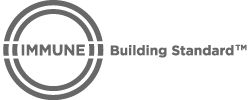After the pandemic, 45% of employees expect a full return to office life. For another 35%, the working model of the future is hybrid
21 April 2021. The hybrid way of working has increasingly taken shape globally over the past year and there are already employers in Romania who have decided to permanently switch to this system, where employees work partially from the office and from home. Almost 35% of employees who participated in a recent survey initiated by Genesis Property believe that the working model of the future is hybrid. After the pandemic, another 45% expect to completely return to office life, similar to how it was before Covid-19. Only one in five employees believe they will work more from home in the future, shows the Genesis Property survey, one of the most important class A office developers in Romania, which owns the West Gate Business District and Novo Park.
To maintain a good balance between work and home life, 31.9% of the surveyed Romanian employees want to work only from the office after the pandemic and another 36.2% want to come to the company's headquarters 3-4 days a week. Only 9.4% consider working from home 100% of the time to be more adequate for the future.
Flexibility, balance and efficiency - the main benefits of the hybrid model
For 54.3% of employees, the hybrid work model means flexibility and independence in their professional activity and 51.5% claim that it has a major role in maintaining the balance between personal and professional life. At the same time, 39.5% say that this way they can optimize their time and resources and 38.3% admit that they have worked more efficiently using this system in the past year, having the opportunity to collaborate with their colleagues and better interact with managers. Last but not least, 26.2% say that hybrid work helps them avoid psycho-emotional health problems that can occur when working only from home.
In this context, employees believe that their offices need to undergo important changes in order to adapt to the working model of the future and to be better prepared for the safe return of employees on a large scale. 35.4% of those who responded to the Genesis Property survey expect changes in health protection measures whilst 32.5% believe they will also see changes in the structure and organization of the workplace so that it can better respond to the future way of working applied in the company.
“No matter how we will work after the pandemic, the office where we will spend at least a few days a week must be prepared to mitigate health risks. To feel safer in the office, employees want high-performance systems to improve the air and water quality in the building, sanitary materials to be distributed immediately when needed, sanitizing systems and well-established procedures in case of illness in the company. The implementation of these measures, included in The IMMUNE Building Standard™ (IMMUNE™), gives people the confidence and peace of mind they need to be creative and efficient”, says Darren Allen, Development Manager at Genesis Property, responsible for implementing the IMMUNE™ project.
Launched in April 2020, shortly after the pandemic outbreak, IMMUNE™ is the first global open-source standard to assess the resilience of office buildings to the Covid-19 pandemic and other similar health threats. The standard proposes 135 science-based, coherent measures that any office building owner or employer operating in the building can apply to improve the resilience of offices to health challenges both from today and in the future.
The Genesis Property survey regarding employees' perception of the future of work and the return to the office was conducted in February-March 2021 through the iVox platform, on a total sample of 1,183 internet users across the country. Almost 59% of the participants are women, approximately 60% are aged between 25 and 40 and 9 out of 10 are full-time employees.
